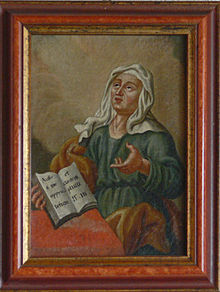The Tanakh’s Psalm 119 (Psalm 118 in the Septuagint) is acrostic poem that runs in alphabetical order. Each stanza is ascribed to a particular letter of the Aleph-Beth starting with Aleph and ending in Tau. Each stanza begins with a word starting with the particular letter that stanza is devoted to. Hard to ignore the implication to those studying and practicing Qabalah.
In the Jewish tradition this poetical prayer holds up the Torah as a source of blessing and a guide to proper conduct and persons saying the prayer dedicates themselves to the Divine Law detailed therein.
According to Wikipedia, this Psalm was also important to the Eastern Orthodox church:
“The psalm (118 in the Septuagint) figures prominently in the worship of the Orthodox Church. There is a tradition that King David used this psalm to teach his young son Solomon the alphabet—but not just the alphabet for writing letters: the alphabet of the spiritual life.
“The psalm comprises an entire Kathisma (division of the Psalter) in Orthodox liturgical practice. In Orthodox monasteries it is read daily at the Midnight Office: ‘At midnight I arose to give thanks unto Thee for the judgments of Thy righteousness’ (v. 62). It is read at Matins on Saturdays and is also chanted on many Sundays throughout the year. A major portion of Matins on Holy Saturday comprises chanting the entire psalm as a threnody, divided into three parts (stases) with Praises (Greek: Enkomia) interspersed between each verse. This chanting is done as all stand holding candles around a catafalque over which has been placed the Epitaphion (a shroud embroidered with the figure of Christ laid out for burial).
“The psalm is also chanted with special solemnity at Orthodox funeral services and on the various All-Souls Days occurring throughout the year, with ‘Alleluia‘ chanted between each verse. Its use here is a reflection of the chanting done on Holy Saturday. ‘Alleluia’ is chanted between the verses to signify the victory over death accomplished by Christ’s death and Resurrection, and the eternal reward promised to the faithful.”
This Psalm was also important to St. Benedict who employed it in several liturgical contexts.


